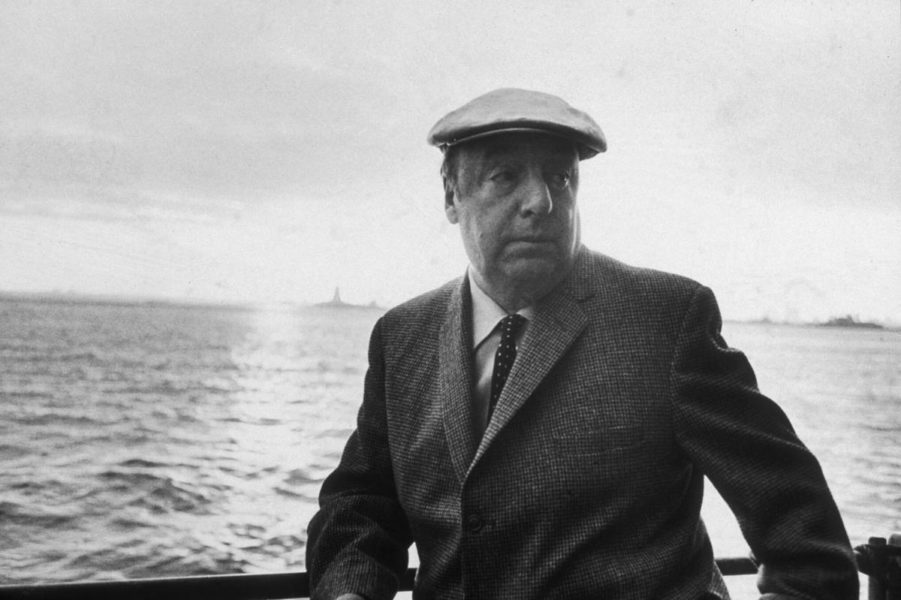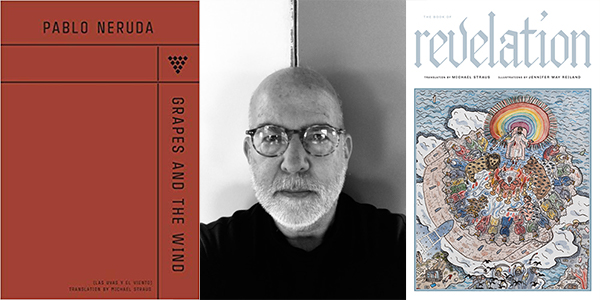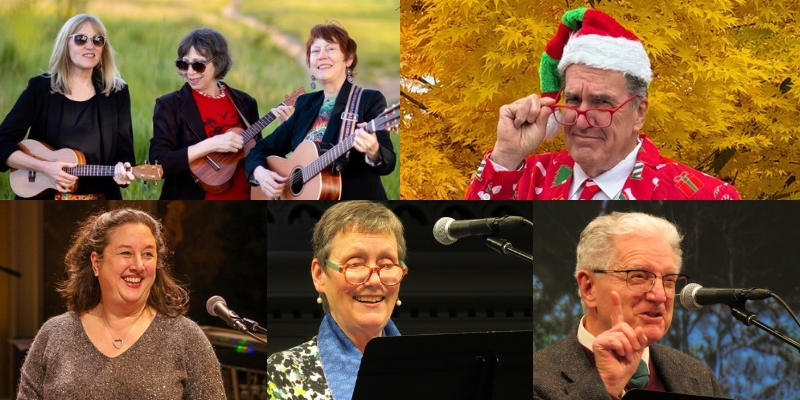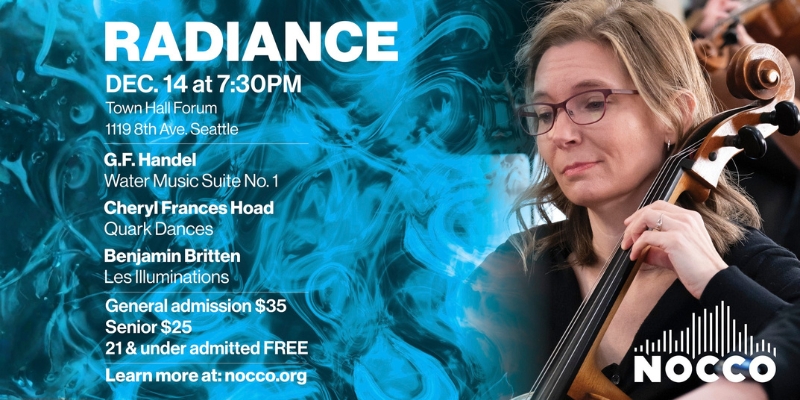There are thousands of living languages spoken in the world—and countless literary masterworks written in each of those languages. Translators like Michael Straus offer us a gateway to these incredible works of fiction and literary history. Straus will join us onstage on March 19 at the Summit on Pike with Washington State Poet Laureate Claudia Castro Luna to discuss the process and philosophy of translation, as explored in two of his most recently translated books—Grapes and the Wind by Pablo Neruda, and a richly illustrated edition of the Bible’s Book of Revelation.
Straus recently sat down with Town Hall Marketing Manager Jonathan Shipley to discuss language, rhyme, and the difference between translation and interpretation.
JS: What got you into translating to begin with? What’s your background in languages?
MS: Spanish became a second language to me as a result of my time as an exchange student in Santiago, Chile during high school. Although I had had a couple of years of Spanish in junior high and high school before then, it was only by being immersed in a setting where no one spoke English to me—not in the family I stayed with or at school—that I really grappled with the mysteries of communicating across language barriers. My initial weeks in Chile were difficult, not because I wasn’t welcomed—I was—but because I had to consciously construct sentences in Spanish in my head, translating from English to Spanish, before speaking them. And I similarly had to consciously translate Spanish to English before I felt I understood what was being said to me. At some point I stopped doing so, i.e., I ‘understood’ what was being said to me in Spanish without first translating into English and likewise responded in Spanish without first thinking the answer through in English. In a sense, I began to experience or at least have some confidence that one can communicate thoughts and feelings across different languages with the underlying meaning left intact. And at the same time I recognized that the linguistic medium or context remained variable, in that there were often cultural and historical nuances and overtones unique to any given language that might never be fully communicated, a gap that continues to interest me as I try my hand at presenting in one language thoughts and feelings formed in another.
Spanish is thus a second language to me from a spoken point of view, but also from literary works I then continued to study on my return to the United States both in my remaining year of high school and then at Columbia College. In addition, I sort of absorbed what I’ll call ‘baby Dutch’ while working in the Netherlands after law school as Legal Advisor to the Iran-United States Claims Tribunal in The Hague, enough Dutch to handle basic living requirements such as shopping, traveling and the like. Apart from that, the two official languages were English and Farsi, but French was used as an ad hoc common language between the Iranian members of the Tribunal and various others. I therefore also absorbed a working knowledge of French but chiefly as a passive language, meaning I have some ability to read and understand French but very limited ability to speak it. More recently, I studied Greek and Latin, neither of which is a ‘living,’ i.e., spoken language (except to the extent ecclesiastical forms of Greek and Latin are used in the Orthodox and Catholic Churches), with a principal concentration in Greek, as to which I have graduate degrees from Columbia University and the University of Cambridge.
JS: What got you into poetry? Do you write poetry yourself? What poets speak to you?
MS: I’m not a professional poet by any stretch, although I do aim to write ‘poetically’ in relevant translations. My first exposure to serious poetry was, I think, through the periodic visits the poet John Ciardi made to the local public schools I attended in New Jersey, where he would speak and teach on poetry and provide kids with poetry exercises and tasks.
JS: Why did you gravitate to Pablo Neruda? And, specifically, this work?
MS: I first learned of Neruda during my time as an exchange student in Chile. He was then and probably still is considered the greatest Latin American poet of the 20th Century, later winning the Nobel Prize for Literature in 1971. There were nearly always political aspects to his works, deeply rooted in his membership in the Communist Party but also universalized in his vision of a common humanity. I became aware of this poem specifically because its central section, a hearkening back to Chile during his time in political exile, was given to me in a separately printed form as a going away present from my fellow students. It was only more recently that I turned back to it and was surprised to discover that the poem had never been translated, in whole or in part, into English and that in fact it had seemingly fallen through the cracks in the wider anthologies of his works. That presented both a challenge and an opportunity.
JS: When it comes to translating poetry, what are the key facets that a translator needs to focus on (rhyme, cadence, etc)?
MS: In addition to his own poetry, John Ciardi (who as noted visited our local public schools regularly) is probably best known for his translation of Dante’s Divine Comedy, where he rejected as a potential ‘disaster’ the idea that it would be most faithful to Dante to render his Italian terza rima rhyme scheme (aba, bcb, cdc, ded) into English, opting instead for what is seen as a kind of ‘musical’ English in plain verse. I take Ciardi’s approach to suggest that faithfulness to an original doesn’t mean forcing it into an entirely different grammatical and structural mold but rather finding, if possible, an equivalent spirit of the thing. I think that’s a good approach because some languages, such as Italian, are more ‘rhyme-friendly,’ while English is less so. The same is true with meter, where, for example, Homeric Greek might accommodate dactylic hexameter (each dactyl being 1 long and 2 short syllables, but with a tolerance for 2 long syllables, or spondees as substitute) but another language might not. This same meter, so-called ‘epic’ or ‘heroic,’ does appear in English, notably Longfellow’s Evangeline (‘This is the forest primeval. The murmuring pines and the hemlocks…’), but would now fall kind of flat. So there is thus always a risk of poetry coming out ‘sing-songy’ if a translator tries to force rhymes or meter that might not be as well-suited to the spoken rhythms of the receptor language.
JS: What are the common challenges to translating poetry? How do you know if you’re doing it “right”?
MS: I’m sure that the challenges vary depending on the original and the receptor languages. There must be entirely different concerns when translating from ideographic languages, for example. I would guess that if there is a common challenge it is how to be faithful to the poet’s own muse without creating something entirely detached, even if it bears no strict correlation with the original. And in that context I would say that word-for-word translation, which doesn’t even work that well for prose, is entirely unsuited to poetry, which does not rely on words simply ordered together but, constellations of words, allusions, internal or external rhyme schemes, echoes, rhythm, complex metrical structures and the like, none of which will find 1:1 correspondence from one language to another.
Without being too flip, it could simply be that ‘I know it when I hear it.’

Pablo Neruda
JS: Are there specific challenges to translating Neruda?
MS: Focusing on this poem (which is the only one of his I’ve translated, the rest of his corpus already having the benefit of multiple translations while this has but the one), the two main challenges for me were (1) adhering to the concreteness and at times sparseness of his language, where he generally chose the simplest of Spanish words for things like water, air, earth and the like and rather than seek variations or synonyms stuck to using the same word throughout; and (2) grappling with the hagiographic approach to such monstrous people as Stalin and Mao. Neruda’s poems are also suited to be read aloud, in Spanish anyway, and in Chile itself are memorized and/or put into song. It was therefore a challenge to render the work into English in a way that would at least not be jarring if read aloud. I’ll let others judge whether I’ve done so with any degree of success.
JS: What is the main goal of a translator? To “disappear” and let the words speak for themselves? Do you consider yourself a collaborator with the author?
MS: Walter Benjamin said it is to ‘liberate the language imprisoned in a work.’ It might be vain to think of oneself as a collaborator—in this case, at least, I’ve been authorized to undertake the translation by the poet’s estate but not by him and given the minimal translation of this poem during his lifetime (‘East’ German, Romanian and Hungarian and even then in the mid-1950’s), it’s impossible to speculate how he would react. I do think it’s fair to say that the poet’s voice should somehow control. In other words, a translator doesn’t have unlimited freedom, in my view, to depart from the underlying sense or tone of the poem—otherwise it wouldn’t be a translation but an interpretation (not that these will always be easy to dissect).
JS: Are there ways a translation can improve upon the original? If so, in what ways?
MS: That’s a tough question because to some extent we may not fully appreciate the original if it wasn’t written in our own native language. At the same time, there are some originals that are so totally opaque to a non-speaker, such as Beowulf, that any reasonably readable translation is an improvement. But taking that example, Beowulf in the hands of a translator who is himself independently a great poet—as with Seamus Heaney—becomes a poem that stands alone as if it had originally been written in modern rather than Old English. That’s got to be some form of improvement.
JS: What’s next for you? What are you working on or are about to?
MS: I’m considering translating the poems and fragments of Alcaeus, a contemporary of Sappho’s from the Island of Lesbos during the so-called Archaic period of Greek poetry in the 7th to 6th Centuries B.C.; and have started on several already. I also have completed a translation of the New Testament (from Greek) with publication forthcoming this spring.

Michael Straus will be speaking about translation, Pablo Neruda, and his work translating the Book of Revelation on March 19 at the Summit on Pike with Washington State Poet Laureate Claudia Castro Luna. Get your tickets now.


